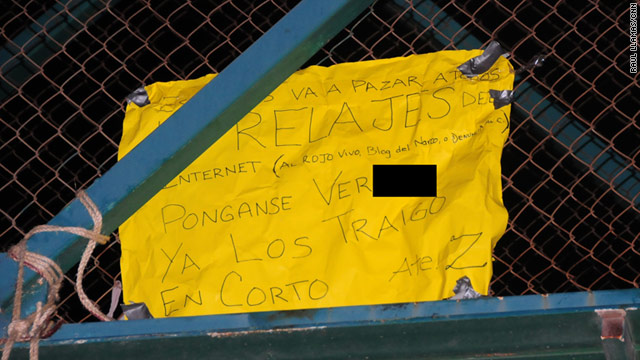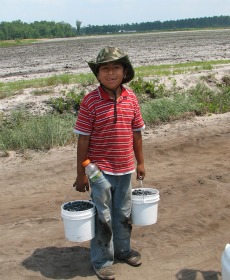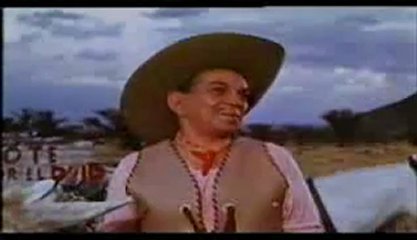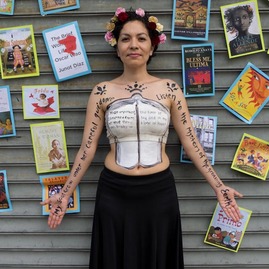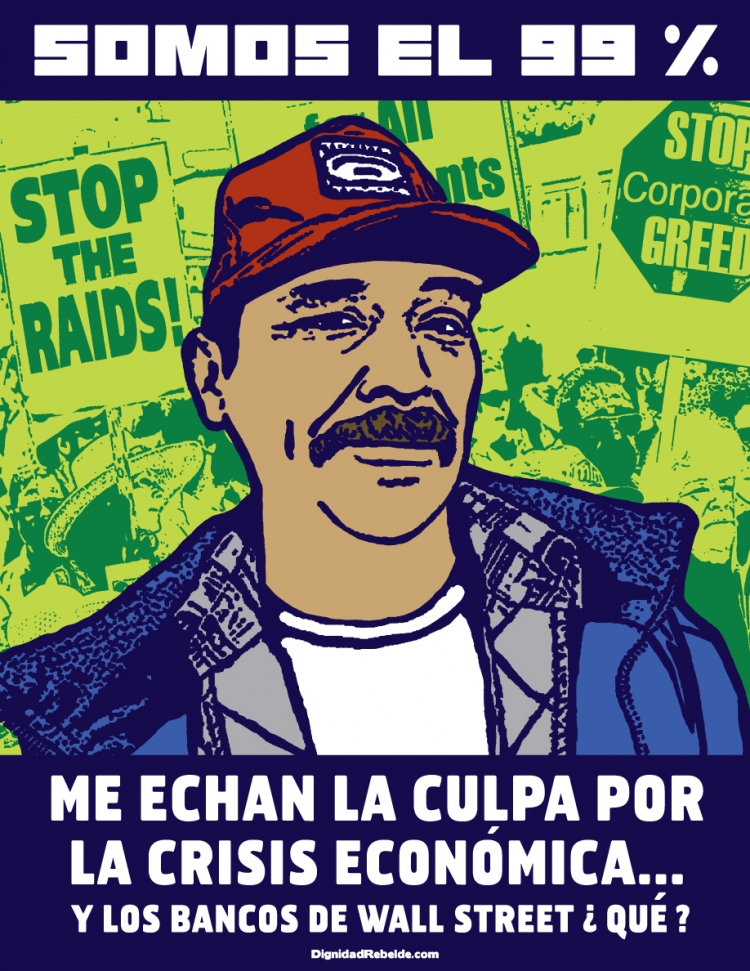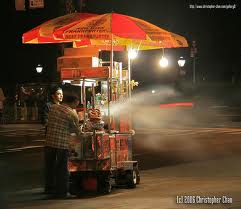(English → Français) View originalTranslators:
Story and Pictures From CNN: You can find the story on their site here.djwji4y70n1mo2ul0abs0ip6w7ohchbh
PLEASE NOTE: VIEWER DISCRETION IS ADVISED FOR THE LAST PICTURE.fsdykszpn0fti4e639k1679br8m572nv
By Mariano Castillo, CNN3swersn45hmx32lzlfdngo9r9emadcza
(CNN) — Social media users who denounce drug cartel activities along the Mexican border received a brutal warning this week: Two mangled bodies hanging like cuts of meat from a pedestrian bridge.hcwxtahzd1ujgkdfmeszotaauzdflmww
A woman was hogtied and disemboweled, her intestines protruding from three deep cuts on her abdomen. Attackers left her topless, dangling by her feet and hands from a bridge in the border city of Nuevo Laredo. A bloodied man next to her was hanging by his hands, his right shoulder severed so deeply the bone was visible.swazy6hugpash899pqmodi0h4ucnknlx
Signs left near the bodies declared the pair, both apparently in their early 20s, were killed for posting denouncements of drug cartel activities on a social network.0zhsvhz5vwiu65tgn08op0zxjfh6v7jp
“This is going to happen to all of those posting funny things on the Internet,” one sign said. “You better (expletive) pay attention. I’m about to get you.”cg3egx1s2hnww0rwc8fhm7y4fjrpqrwb
The gruesome scene sent a chilling message at a time when online posts have become some of the loudest voices reporting violence in Mexico. In some parts of the country, threats from cartels have silenced traditional media. Sometimes even local authorities fear speaking out.fo6jzicbqgvrdieppp3k6aqsv9dab8b2
Mexico’s notoriously ruthless drug gangs regularly hang victims from bridges and highway overpasses.i1rdd1je4d2e72xk6hk8kvr336vqeieb
And bloggers who specialize in sharing news about trafficking have been threatened in the past. But this could be the first time users of such social networks have been targeted.37z47eh01l0p11lgh81gzwtkzeytkonq
Investigator Ricardo Mancillas Castillo said he had not encountered a threat against Internet users in his four years based in Nuevo Laredo. But the signs of torture — the cuts, the disembowelment — were along the lines of what officials are used to seeing in drug-related violence.v0mfs1dlpzsp4abmzvj0a7lrhd87uvwu
In the case of the two victims found on the Nuevo Laredo bridge Tuesday, their ears and fingers were mutilated, said Mancillas, who works for the public prosecutor’s office.gp66hjkncbpj1ww55w2hxvijbfaathm1
There are no witnesses, and it is a nearly impossible task to identify the perpetrators, he said.d76227w30o5nbpcexbnigaesl6nt62cp
Thirty-six hours had passed since the bodies were found Tuesday morning, but no one had come to claim them and they remained unidentified, Mancillas said.6alv6v6umye6yp345hndq9ias0itprsu
It will be nearly impossible to determine if the two victims actually posted anything about cartels on the Internet, as people don’t usually use their real names online, he said.5jffpmwlye4mzr35wul6jgw7fyrgoi7s
The placards threatened those who report violent incidents through social media networks. It listed two blogs by name, Al Rojo Vivo and Blog del Narco.wuus74msfb4tl6043bq85remjjrjk081
They were signed “Z,” a possible reference for the Zetas cartel, which operates in the area.cfdjxpwkxbo0xzsjazlc5i97zbs15wkl
ync3cg9lgk6e36v4a44fgqgz7r70w7b2
Blog del Narco is a website that deals exclusively with news related to drug violence in Mexico. Its creator remains anonymous.5w5po9klf0mfyzljsn9x71mbfzl1ua2w
On the Al Rojo Vivo forum, where citizens can make anonymous tips, one person wrote: “Don’t be afraid to denounce. It’s very difficult for them to find out who denounced. They only want to scare society.”ltg1imrce6us4xyabwueamj9nzmxnp3v
One Twitter user echoed that sense of defiance in light of the threats.jpz8bzdhy9hx8vof6110z6a2gxj5yilf
“Enough! If we shut up today, we will have lost the ground that we have gained. This is the time to show what we are made of,” the owner of the @QuestoyQuelotro Twitter account wrote.vukj2bd10c72ac9beywj1ytdwh5oipmt
In a statement sent to CNN, Blog del Narco said its site is not dedicated to denouncing crime, as are other sites.nlikqtodjd91r94zc89c5x92asvzim66
“In addition, we are not in favor or against any criminal group, we only inform as things happen,” the statement said.tj6wqfdc5465n42a2vq6v7x8e88r2zlt
More than 34,600 people have died in drug-related violence since Mexican President Felipe Calderon announced a crackdown on cartels in December 2006, according to government statistics. Other reports have listed a higher toll. The latest Mexican government tally was released in January.fkygg694x2h15wyxvmrtjhiqwumxe9na
CNN’s Catherine E. Shoichet, Rafael Romo and journalist Raul Llamas contributed to this report. f44shgxu8bz5z2iv1c8bgudf6j8jb03g
(original) View Français translation
Story and Pictures From CNN: You can find the story on their site here.
PLEASE NOTE: VIEWER DISCRETION IS ADVISED FOR THE LAST PICTURE.
By Mariano Castillo, CNN
(CNN) — Social media users who denounce drug cartel activities along the Mexican border received a brutal warning this week: Two mangled bodies hanging like cuts of meat from a pedestrian bridge.
A woman was hogtied and disemboweled, her intestines protruding from three deep cuts on her abdomen. Attackers left her topless, dangling by her feet and hands from a bridge in the border city of Nuevo Laredo. A bloodied man next to her was hanging by his hands, his right shoulder severed so deeply the bone was visible.
Signs left near the bodies declared the pair, both apparently in their early 20s, were killed for posting denouncements of drug cartel activities on a social network.
“This is going to happen to all of those posting funny things on the Internet,” one sign said. “You better (expletive) pay attention. I’m about to get you.”
The gruesome scene sent a chilling message at a time when online posts have become some of the loudest voices reporting violence in Mexico. In some parts of the country, threats from cartels have silenced traditional media. Sometimes even local authorities fear speaking out.
Mexico’s notoriously ruthless drug gangs regularly hang victims from bridges and highway overpasses.
And bloggers who specialize in sharing news about trafficking have been threatened in the past. But this could be the first time users of such social networks have been targeted.
Investigator Ricardo Mancillas Castillo said he had not encountered a threat against Internet users in his four years based in Nuevo Laredo. But the signs of torture — the cuts, the disembowelment — were along the lines of what officials are used to seeing in drug-related violence.
In the case of the two victims found on the Nuevo Laredo bridge Tuesday, their ears and fingers were mutilated, said Mancillas, who works for the public prosecutor’s office.
There are no witnesses, and it is a nearly impossible task to identify the perpetrators, he said.
Thirty-six hours had passed since the bodies were found Tuesday morning, but no one had come to claim them and they remained unidentified, Mancillas said.
It will be nearly impossible to determine if the two victims actually posted anything about cartels on the Internet, as people don’t usually use their real names online, he said.
The placards threatened those who report violent incidents through social media networks. It listed two blogs by name, Al Rojo Vivo and Blog del Narco.
They were signed “Z,” a possible reference for the Zetas cartel, which operates in the area.
Blog del Narco is a website that deals exclusively with news related to drug violence in Mexico. Its creator remains anonymous.
On the Al Rojo Vivo forum, where citizens can make anonymous tips, one person wrote: “Don’t be afraid to denounce. It’s very difficult for them to find out who denounced. They only want to scare society.”
One Twitter user echoed that sense of defiance in light of the threats.
“Enough! If we shut up today, we will have lost the ground that we have gained. This is the time to show what we are made of,” the owner of the @QuestoyQuelotro Twitter account wrote.
In a statement sent to CNN, Blog del Narco said its site is not dedicated to denouncing crime, as are other sites.
“In addition, we are not in favor or against any criminal group, we only inform as things happen,” the statement said.
More than 34,600 people have died in drug-related violence since Mexican President Felipe Calderon announced a crackdown on cartels in December 2006, according to government statistics. Other reports have listed a higher toll. The latest Mexican government tally was released in January.
CNN’s Catherine E. Shoichet, Rafael Romo and journalist Raul Llamas contributed to this report.




